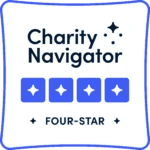From November 6-8th, 2014, nine Ho’ola Na Pua volunteers traveled to Washington D.C. for the sold out Shared Hope International’s Juvenile Sex Trafficking Conference (JuST).
We joined more than 500 advocates, abolitionists, and non-profit groups; law enforcement, judicial, and medical professionals; and various other leaders and experts to discuss the most pressing issues facing anti-trafficking entities today.
 We each attended about six sessions a day of inspiring keynotes and engaging workshops on subjects such as:
We each attended about six sessions a day of inspiring keynotes and engaging workshops on subjects such as:
- 10 Keys to Safe Home Development
- The Commercial Sexual Exploitation of Adolescent Males
- Child Sex Trafficking Reporting and Recovery Planning
- Family-Controlled Sex Trafficking
- Strengthening your State’s Response Protocols
- and much, much more
We were also able to take part in a live-stream press conference, as well as a JuST Response congressional briefing at the U.S. Capitol building.
Perhaps the activity that stood out most for our group was the privilege of meeting the survivors, and now survivor advocates: Jen Spry, Marq Taylor, and Nikolaos Al-Khadra. Each candidly shared their personal stories of childhood commercial sexual abuse. The focuses of their discussions, however, were on the lack of services for both female and male victims in today’s system. Rather than be defined by their experience, these three use their past to bolster their capabilities as advocates.
Aside from these scheduled activities, we also relished in the opportunity to discuss strategies with fellow advocates from across the nation. We shared ideas on everything from legislation to community outreach; trauma informed care and treatment; and other challenges in our work. These discussions left us feeling motivated to incorporate these new strategies in our quest of bringing care and justice to child sex trafficking victims.
We want to say mahalo to all the speakers, attendees, and the Shared Hope International organization for revitalizing our team with this successful conference. We plan to share and apply all the knowledge gained to better serve our community and these underage, under-served victims.
Below, we wanted to give the team a chance to share what they took away most from the conference.
Jessica: I greatly enjoyed our core team of world changers being together in the capitol of this great nation. It was encouraging to see this team creating change in Hawaii around this issue of trafficking alongside our fellow abolitionists around the country. I was reminded of the ever-changing landscape surrounding trafficking and the need for more and more collaboration within the social service agencies, NGO’s, and law enforcement. Collaboration is the core of Ho’ola Na Pua’s operations and program development, and I am greatly encouraged that we in Hawaii are moving forward on the right track as we focus on changing the tides of trafficking in our state. I also had the amazing opportunity to connect with other psychologists and therapists who are working in the field of trauma with this population we serve. It was highly encouraging to see that several of the interventions and trainings we have engaged in locally in the past few years are on par with the current trends nationally! This is incredibly exciting, and we can celebrate our progressive movement and thinking while continuing to move forward in our efforts.
Tammy: I learned so much from this conference that I look forward to applying to my own efforts. My favorite session was the Dissociative Identity Disorder. Since I advo cate for and mentor survivors, I feel this gave me a better idea of what to look for and how to deal with the disorder if it presents in a victim. I also liked getting more informed about males that have been trafficked, such as how they cope and how society treats them. My heart broke for them as they shared their personal struggles and experiences. My Favorite part about the conference was that so many different agencies were represented. Law enforcement, social services, survivors, and others concerned about the issue of minor domestic sex trafficking were all there to learn and contribute.
cate for and mentor survivors, I feel this gave me a better idea of what to look for and how to deal with the disorder if it presents in a victim. I also liked getting more informed about males that have been trafficked, such as how they cope and how society treats them. My heart broke for them as they shared their personal struggles and experiences. My Favorite part about the conference was that so many different agencies were represented. Law enforcement, social services, survivors, and others concerned about the issue of minor domestic sex trafficking were all there to learn and contribute.
Kaleo: I am extremely grateful that our team was able to attend this conference so far from home. It meant a lot to me that we were given the opportunity to seek education from Shared Hope International. I probably took the most from the sessions where legislation and Demand Justice were discussed. I made contacts with all the legislative members for Shared Hope International again and had great discussions on how to move Hawaii forward on our laws. I also found the speakers who were victims to be the most amazing. I got to see the issue of male sex trafficking for the first time by son survivors. It was a very powerful experience.
Jody: The sessions on trauma therapy were fantastic. I gained more insights into behaviors and what to expect from our residents and why they think the way they do. I was also uplifting to meet some of the survivors. It reminded us how proper therapy can result in amazing lives often dedicated to helping others. Spending time as a group was really fun as well. DC has so many amazing sites and restaurants, and I feel the time together made us a stronger team. I also made some good contacts on the state agency level that may be able to help us in some areas where their experience can provide a template to help our state obtain better data.
Leslie: I found the “Fighting Backpage and Winning (Justice for Exploited Juveniles)” session most interesting. It was presented by attorneys currently representing three young girls who were sold on Backpage. They provided great insight on how Backpage has gotten away with blatantly displaying sex trafficking ads, where buyers freely shop for men, women, boys, and girls. The session quickly turned into an open question and answer session, where attendees asked what they could do (locally and nationally) to prevent the ads and help victims.
Kimberly: I learned so much information that I will include in the presentations I give to military, middle/high school, and community audiences. “The Inevitable Addiction Breakout” session, for example, provided me a lot of new information about the dangers of social media and gaming, as well as the impact they have on a child’s physiological and emotional development that can lead to a child becoming a predator or victim. I also found the “I AM: Empowerment Project” very powerful. It focused on working with at risk youth in detention centers using real life experiences to connect and empower young men, attempting to break the cycle of violence that can later lead to predatory behavior. The testimonies from survivors were impactful as always. It never fails to remind me of what is important. It was truly inspirational to me that two male survivors shared their stories with us this time.


